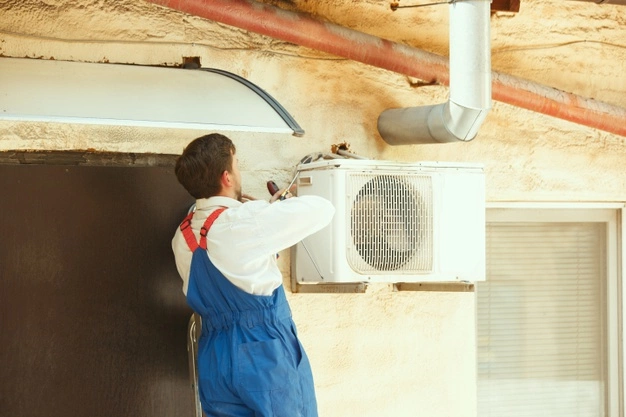Poor airflow will affect the temperature indoors because the amount of air that passes through your home will impact this aspect and proper ventilation is a must if you want your home to remain comfortable.
Poor airflow will lead to stuffy rooms, and homeowners often complain about stuffy air without realizing that ventilation is the problem. Poorly ventilated spaces will lead to high humidity levels, which can raise indoor temperatures as it would allow the air to hold more humidity. This would result in a stuffy atmosphere, and everyone within the household would feel uncomfortable, as this kind of discomfort would be very noticeable.
Proper ventilation would help push out hot air that is humid and would help draw in cooler air that contains less moisture content. If good ventilation is missing from your home, stagnant air will continue to collect more moisture, and all of the improperly ventilated areas will become even stuffier as time goes on.
There are ways to bring temperatures back down to normal, and opening up windows and doors is one way of improving airflow. Cracking open a window or door will make a very big difference as this would push humid air out of your home while encouraging cooler breezes to flow inside. This is a very simple step every homeowner should take to maintain good airflow and eliminate the buildup of dust and debris. Using exhaust fans will also help you maintain your ideal indoor temperature because these fans will eliminate stuffy air while promoting improved airflow, so make sure you use your existing exhaust fans in your bathrooms and kitchen. Homeowners can also invest in balanced mechanical ventilation, which would provide both indoor exhaust and outdoor supply airflow. These systems are very effective, and balanced ventilation will help keep indoor temperatures at comfortable levels year-round.
The reality is that sufficient ventilation is very important because without it, your home will not be comfortable, and everyone will feel the stuffiness that will occur whenever a home is closed uptight. This will prevent your heating and cooling system from working efficiently, and without sufficient ventilation, you may not be able to rely on your HVAC system. Trapped air will cause your HVAC equipment to struggle and will prevent it from reaching your ideal temperature setting on your thermostat. Stale indoor air must be pushed out, and fresh outdoor air must enter your home, as this cycle will help regulate indoor temperature, and you will be much happier and much more comfortable as a result.
Proper ventilation will provide you with healthier air quality and better humidity control, and the experts at Inkster Heating & Cooling can provide you with more information. Whether you need help with your air conditioner or furnace or want to improve ventilation, we do it all, so if you are in Winnipeg, contact us today!

